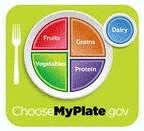Nutrition and Health Sciences, Department of

Department of Nutrition and Health Sciences: Dissertations, Theses, and Student Research
Date of this Version
Summer 5-19-2015
Document Type
Thesis
Abstract
MicroRNAs (miRNAs) can be synthesized endogenously and cause gene repression. Encapsulation of miRNAs in exosomes confers protection against degradation and a vehicle for shuttling between cells and tissues, and cellular uptake by endocytosis. Exosomes can be found in biological fluids and foods including milk. Evidence suggests that humans absorb cow’s milk exosomes and deliver the microRNA cargo to peripheral tissues, consistent with gene regulation by nucleic acids across species boundaries. There is strong evidence that milk exosomes may cross the mucosa without re-packaging in mice. Here, we tested the hypothesis that human vascular endothelial cells transport milk exosomes by endocytosis, as a crucial step toward delivery of dietary microRNAs to peripheral tissues. Studies were conducted using human umbilical vein endothelial cells and fluorophore-labeled exosomes isolated from cow’s milk. Exosome uptake followed Michaelis-Menten kinetics (Vmax = 0.057±0.004 ng exosome protein x 40,000 cells-1 x hour-1; Km= 17.97±3.84 µg protein/200 µl media) and decreased by 80% when the incubation temperature was lowered from 37°C to 4°C, consistent with carrier-mediated transport. When exosome surface proteins were removed by treatment with proteinase K or transport measured in the presence of carbohydrate competitors, transport rates decreased by 30% to 50% compared with controls, consistent with a role of surface glycoproteins in endothelial transport. Treatment with cytochalasin D caused a 50% decrease in transport, consistent with endocytosis. We conclude that human endothelial cells transport bovine exosomes by endocytosis and propose that this is an important step in the delivery of exosome cargo to peripheral tissues.
Advisor: Janos Zempleni


Comments
A thesis Presented to the Faculty of The Graduate College at the University of Nebraska In Partial Fulfillment of Requirements For the Master of Science, Major: Interdepartmental Area of Nutrition, Under the Supervision of Professor Janos Zempleni. Lincoln, Nebraska: March, 2015
Copyright (c) 2015 Rio Jati Kusuma